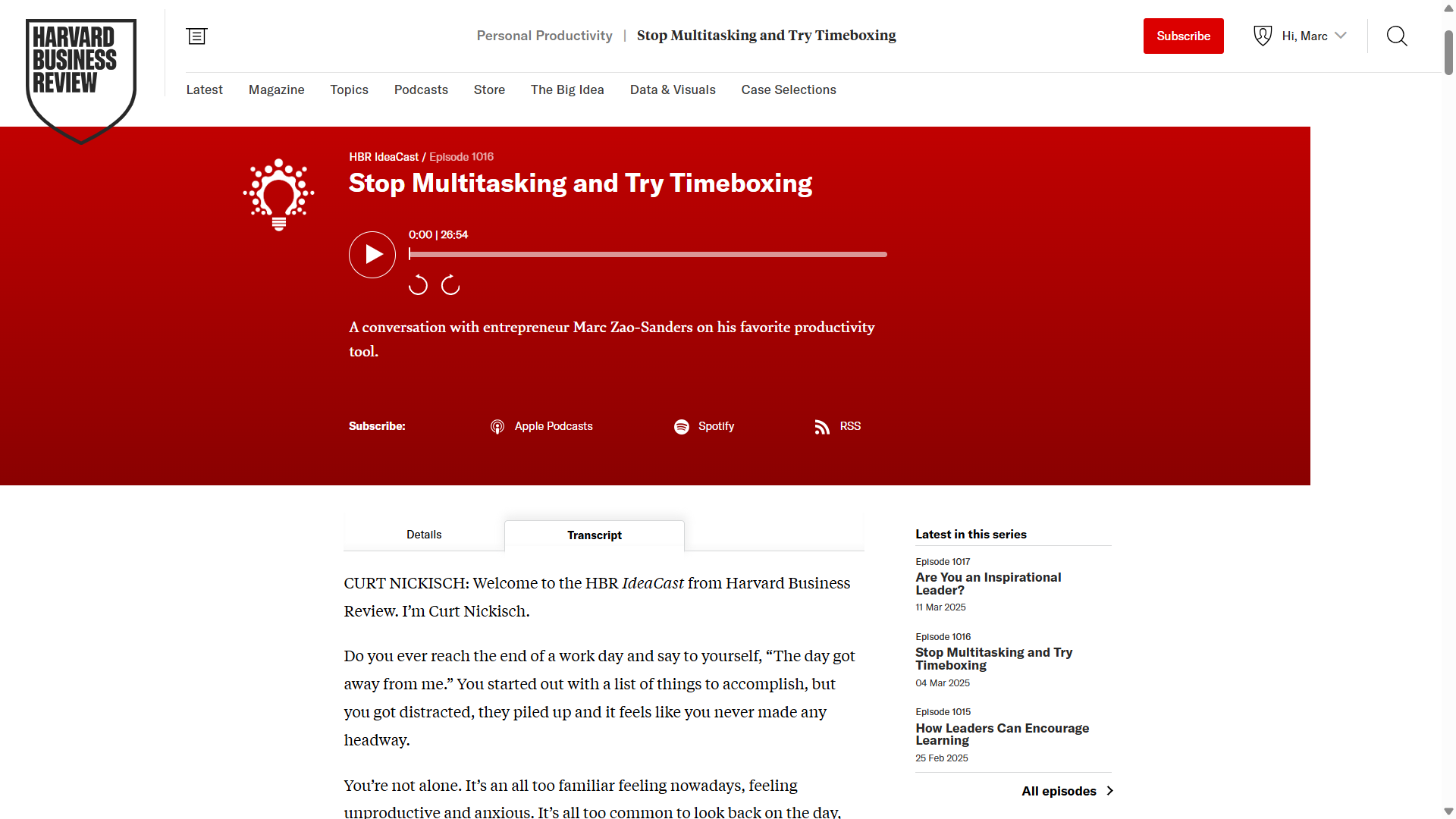TLDR: Interview with Curt Nickish on HBR’s IdeaCast
Word count: 302
Read time: 2 mins
Right now, I’m in Seattle seeing one of the BigTech companies. Many of the people I’ve met here have just joined this newsletter this week in fact, and to those I wish a warm welcome. Since I’m travelling, this one’s shorter than usual.
Fortunately, I have the material from a 25-min podcast that went live last week. It’s Harvard’s IdeaCast, hosted by Curt Nickish. It’s called, straightforwardly: Stop multitasking and start timeboxing.
Curt has a wonderful, gentle interview style which puts you at ease. I love that he made this observation himself, during the conversation:
Yeah, that’s definitely a familiar thing and I know a lot of people feel like that sometimes, that you can ask them, “How was your day?” Or, “How did things go?” And they’re like, “I’m not even sure exactly what I did.”
This is so true for virtually all of us. Of course, we’re even less able to answer the question if it’s about a day last week, not to mention even further back. I’ve just reviewed the answer I gave live on the podcast and it was good enough. I should have elaborated more though on the point that an historic timebox can unlock a high-fidelity memory. So, by timeboxing we don’t just get the low-fidelity history of what we did; we retain access to an imperfect but valuable collection of rich remembrances.
I’ve done a lot of work with Harvard Business Review over the years — 16 or so articles, webinars, keynotes and most recently this interview with Curt. I have another article coming out on HBR later this month, about AI use cases and the rise of AI to help organise our lives.
Ps: the offer to give you a report on your calendar usage still stands. Let me have a week-view screenshot and I’ll send you a report right away.
Marc
Links you may like
7 days of Timeboxing (the free email micro-course)
Timeboxing, the book (US)
Timeboxing, the book (UK)
Timeboxing, el libro (Español)
Connect with me on LinkedIn





